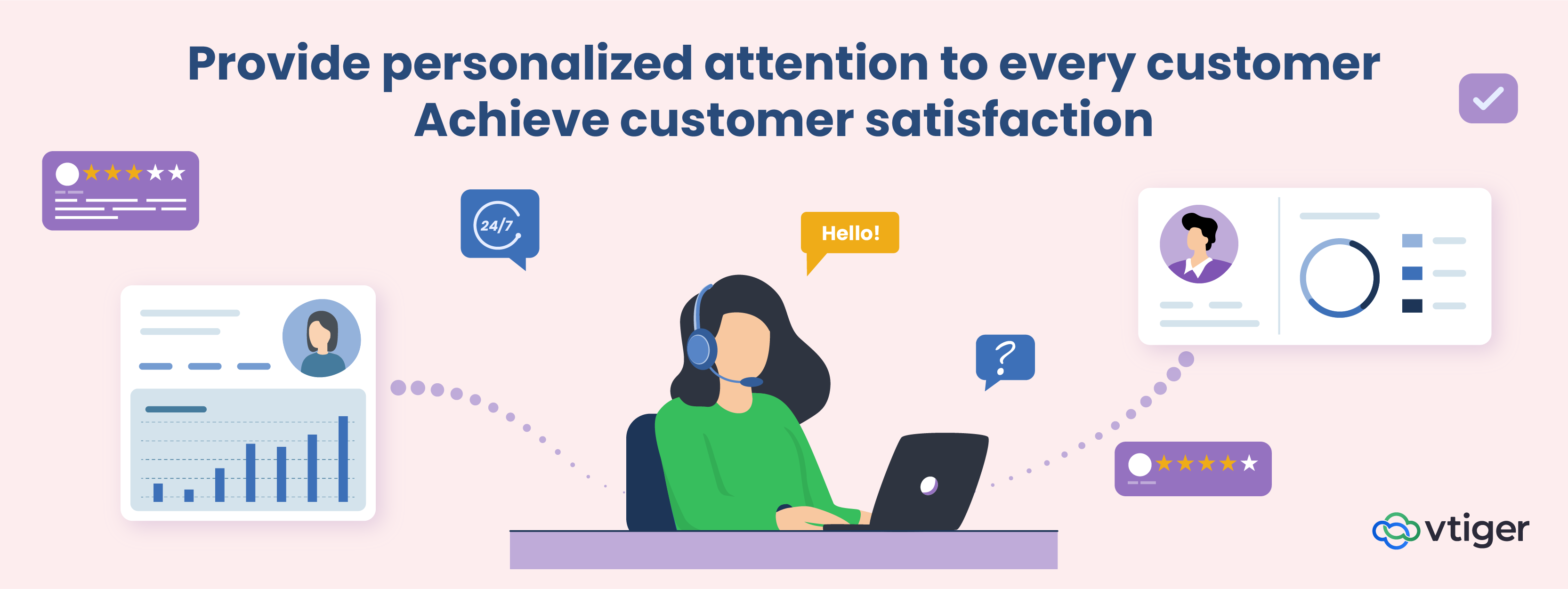We can see a shift in customers’ demands and preferences. They have high expectations from businesses, and living up to their requirements is essential. Also, today’s customers want immediate solutions to their problems and seek personalized customer service.
According to Statista,
Personalization has become one of the most indispensable marketing strategies among B2B and B2C marketers worldwide.
So, what is personalized customer service?
It is about providing tailor-made experiences to your customers, aligning with their unique needs. They feel more connected with your brand with the personalization technique and achieve greater satisfaction.
In other words, personalized customer service is all about supporting your customers that match their unique tastes and preferences. When your support team can offer customized services, customers are more likely to recommend your brand to others.
Why personalized customer service is important
It is challenging to impress customers because of high competition. Thus, offering a customized solution is the only way to make them feel happy and valued. Also, personalization can have a superior impact on customer retention and loyalty.
With personalization, you can:
- Provide improved customer experience by getting to know their specific interests. You are also less likely to receive issues or complaints from them.
- Improve engagement by doing targeted messaging. By communicating properly with your customers via emails, phone calls, social media, etc., you can witness a higher conversion rate and better responses.
- Achieve competitive advantage by providing unique experiences that make you stand out.
Next, let’s understand the strategies to provide personalized customer service.
4 ways to deliver personalized customer service
There are myriad ways to provide exceptional service that fit your customers’ needs. Let’s explore that below:
Provide omnichannel support: You never know from which channels your customers will contact you. Some prefer WhatsApp, while some may like to receive help via email.
Identify your customers’ channels for interactions and integrate them to provide a seamless experience. Use a CRM to make it organized to achieve a unified view of all customer interactions.
Track customer interactions: Map your customer journey from different touchpoints and understand how they perceive your brand at each stage. Touchpoints include website interaction, social media ads, reviews, surveys, etc. All this will help you take necessary action at each stage accordingly.
Leverage AI: With AI, you can use chatbots to address more queries in a personalized way. This will give relief to support agents and helps in resolving important issues around the clock. Also, chatbots help you gather customer insights across various channels in real time.
Gather opinions and feedback: Collecting feedback will help you know how well your customers appreciate your business. It will also give detailed information about how they react to your support strategy. You can ask them to give five-star ratings right after the call or conduct surveys to know their perception.




